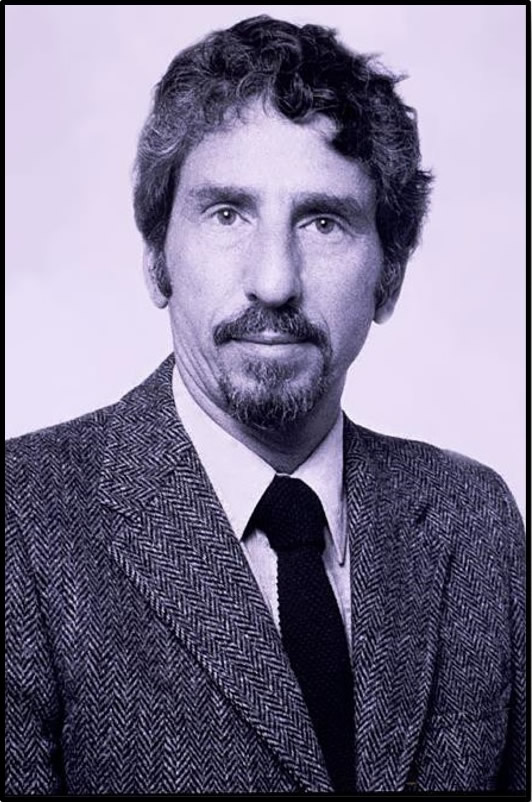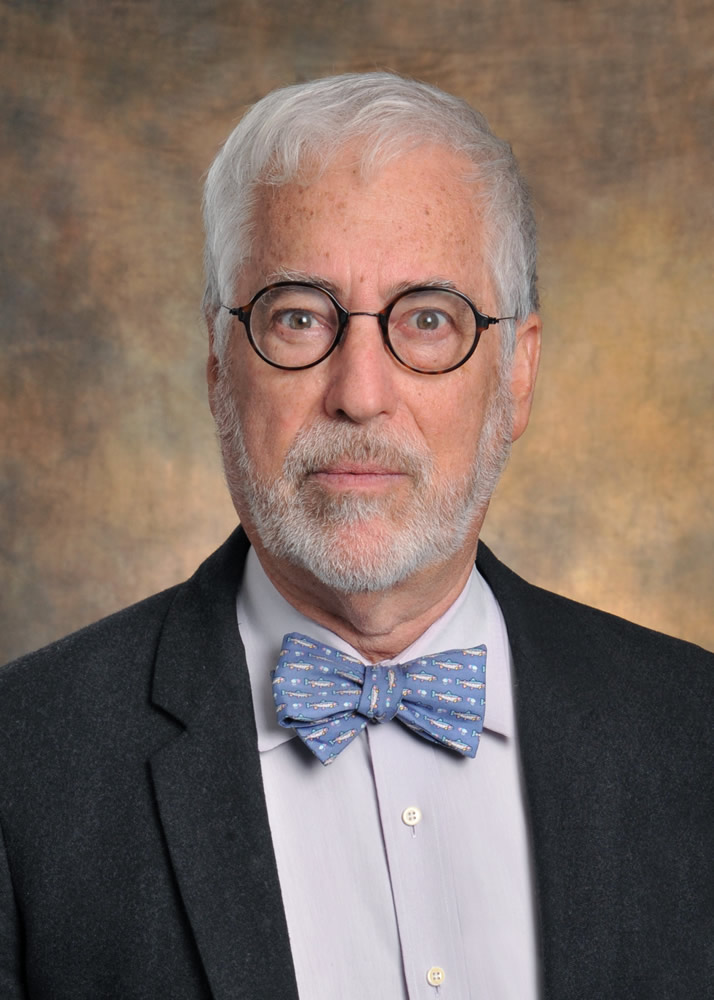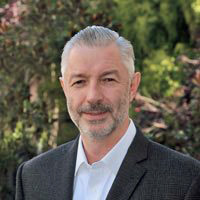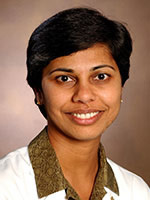The Uveitis Service of the Department of Ophthalmology has had four service Directors since its founding in 1976.

Robert A Nozik, MD ran the service from 1976 until 1996 and remained on faculty until 1999, when he retired from practice. Dr. Nozik received his medical degree and completed his residency at Western Reserve University School of Medicine. After a cornea and uveitis fellowship at The Francis I Proctor Foundation and UCSF Medical School, he joined the Proctor/UCSF faculty in 1967 and was on both that faculty and ran the Uveitis Service at what was then Pacific Medical Center (PMC), now CPMC, from 1976 to 1996.
During that time, Dr. Nozik completed his landmark book entitled “Smith and Nozik’s Clinical Uveitis: An Approach to Diagnosis and Management,” which served as the gospel for residents and fellows for over twenty years. He also developed and popularized the so-called “posterior sub-Tenon’s” approach to periocular corticosteroid delivery. Dr. Nozik published over 80 papers and trained more than 100 fellows during his long career. Dr. Nozik instituted the weekly uveitis lecture series and service that continues to this day.
Nozik made an additional contribution to the residency through his seminal relationship with Aravind Eye Hospital in India where he was instrumental in the development of Aravind’s Uveitis service starting in 1992. His former fellow, Dr. R. Rathinam started the first Uveitis clinic in India at Aravind.
Mid-way through Dr. Nozik’s tenure as service chief Dr. James Rosenbaum was recruited to PMC to serve as the head of the Kuzell Institute for Arthritis from 1983 to 1985. The Kuzell Institute was founded by Bill Kuzell, one of the first rheumatologists in San Francisco. The Kuzell Institute was part of CPMC’s Medical Research Institute of San Francisco along with Smith Kettlewell. It was also home to an NIH funded project called MR FIT (Multiple Risk Factor Intervention Trial) for cardiac health.
Dr. Rosenbaum trained as a rheumatologist at Stanford and accidentally induced uveitis in laboratory rats. In 1981, he received an NIH career development award and started a laboratory at San Francisco General. Although he was studying uveitis in animals, he had never used a slit lamp nor an indirect ophthalmoscope. Dr. Rosenbaum recalled Dr. Nozik sitting him before a slit lamp and showing him cell and flare for the first time in his career. “This was an epiphany,” Dr. Rosenbaum recalled, “As I had been studying inflammation, which is universally characterized by a white cell infiltrate and increased vascular permeability, being able to see both phenomena in real time was a pivotal career experience.”
Dr. Rosenbaum added that “PMC at the time had an incredible ophthalmology faculty, which included Bruce Spivey, Art Jampolsky, Bill Spencer and of course, Bob Nozik. Neal Birnbaum, who became president of the American College of Rheumatology, was the chief of rheumatology. Michael Yellin, who was to make several contributions in the emerging biotech industry, was a medical resident.”

David Heiden, MD ran the service from 1996 until 2006. Dr. Robert Stamper, then department Chair, recruited Dr. Heiden to join the full-time faculty as Director of the uveitis service following his Fellowship at the Francis I. Proctor Foundation/UCSF. Because the completion of his fellowship coincided with the dismantling of the full-time faculty due to the merger with the Sutter Health group. Dr. Heiden accepted a teaching position in clinical ophthalmology and uveitis at UC Berkeley for two years, becoming Uveitis service chief on the retirement of Dr. Robert Nozik, in 1996. In 1995, he joined the private practice of Pacific Eye Associates on campus, where, for a period those who had been full-time at PMC continued their clinical, research and teaching activities. Dr. Heiden took one of the lead positions in re-organizing that group and has served as a clinical consultant in Uveitis at the 2100 Webster street campus since that time.
Heiden came to PMC in 1972, directly after graduation from New York Medical College, and at PMC trained and was Board Certified in Internal Medicine, practiced as an Emergency Medicine specialist for a dozen years including a stint as ER Director, became Board eligible in Emergency Medicine in 1983, and completed Ophthalmology residency in 1992. Prior to ophthalmology residency, Heiden was a Research Associate, Francis I. Proctor Foundation, at UCSF, (1986-92), and following residency he returned to Proctor as the Cecilia Vaughan Fellow in Uveitis, Cornea and External Disease (1992-3). He was advanced to Fellow, American College of Physicians, 1985, Fellow, American Academy of Ophthalmology, 2009, and served on the Uveitis Practicing Ophthalmology Curriculum (POC) Committee for the American Academy of Ophthalmology (2007 – 2012). He has over thirty publications in the peer-reviewed literature.

Emmett T. Cunningham, Jr, MD, PhD, MPH ran the uveitis service at CPMC from 2006 until 2019. Dr. Cunningham received an MD and MPH in epidemiology and statistics from Johns Hopkins University, and a PhD in neuroscience from the University of California at San Diego (UCSD) for work done at The Salk Institute. He completed a residency in ophthalmology and fellowship training in Corneal Disease, External Disease and Uveitis at UCSF and The Francis I. Proctor Foundation, a medical retina and uveitis fellowship at Moorfields Eye Hospital in London, and a fellowship in public health ophthalmology at the Wilmer Eye Institute in Baltimore, Maryland. Dr. Cunningham was Director of both the Uveitis Service and the Kimura Ocular Immunology Laboratory at the University of California at San Francisco (UCSF) from 1995 to 2001 and was Clinical Professor and Director of the Uveitis service at NYU from 2002 to 2005. He has published over 350 papers and reviews, given over 400 presentation internationally – including 9 named lectures, and trained over 150 residents and fellows. Dr. Cunningham was twice presented with the resident’s annual teaching award at CPMC.

Anita Agarwal, MD took over the uveitis service in July 2019. She received her medical degree from Kasturba Medical College, Mangalore, India, and obtained her ophthalmology residency and retina and uveitis fellowship training at the Post Graduate Institute of Medical Education & Research, Chandigarh, India. She moved to the United States and completed her second ophthalmology residency at the University of Florida, Gainesville, a medical retina fellowship at Vanderbilt University and a surgical vitreoretinal fellowship at the University of West Virginia.
Dr. Agarwal joined the faculty of Vanderbilt University in 1999 and rose to the rank of full professor specializing in medical and surgical diseases of the retina and uvea. She moved to San Francisco in October 2016 and is a vitreoretinal specialist at West Coast Retina Medical Group and clinical professor of ophthalmology at CPMC. She is the recipient of the 2014 J. Donald M. Gass Medal for outstanding contributions in the study of Macular Diseases awarded by the Macula Society, the 2015 Optic UK Lecture Medal awarded by the Royal College of Ophthalmologists, UK and the 2018 Secretariat award by the American Academy of Ophthalmology. She has delivered many named lectures, been an invited speaker world-wide, and has also received honor awards from the American Academy of Ophthalmology and the American Society of Retina Specialists. She is the author of the Fifth Edition of the Gass’ Atlas of Macular Disease in addition to several book chapters and over 100 scientific publications. She serves on the editorial boards of journals: Ophthalmology, Ophthalmology – Retina, Retina Cases and Brief Reports, and American Journal of Ophthalmology Case Reports. Between Vanderbilt and CPMC, she has trained over 150 residents and fellows.
Members of the Uveitis section have made a distinctive contribution in international health. Drs. Nozik, Heiden and Cunningham all played a role in the development of the uveitis service at Aravind Eye Hospitals, with Cunningham providing particularly influential support thru annual mentoring visits to Aravind to work with Dr. Rathinam as she established and built the first uveitis service in India. Our clinicians have served as visiting professors in numerous places around the globe.
In 2004, CPMC provided Uveitis Fellowship training for Dr. Anu Manandahar, now Chief of the Uveitis service at Tilganga Eye Center, in Kathmandu, Nepal. She is one of the most highly regarded uveitis specialists in that country and is leading attempts to solve one of the long-standing mysteries of Uveitis, a condition called SHAPU (Seasonal Hyperacute Pan-Uveitis), that only occurs in Nepal.
The uveitis (and retina) faculty has made a particular mark in AIDS-related complications of the eye. Dr. Everett Ai, a former Retina Service Chief, was one of the leading authorities on the Ocular Complications of HIV/AIDS during the first two decades of the epidemic, and was a lead collaborator in clinical trials for a series of CMV retinitis treatments that were developed in the Bay Area by Syntex Corporation.
Heiden served as Director, Special Clinic for Ocular Complications of HIV/AIDS, Mt. Zion Hospital / UCSF, San Francisco, 1996-98, (when the clinic closed and CMV retinitis virtually disappeared in San Francisco). Among his many publications, Heiden provided a landmark review of ocular complications of HIV/AIDS for the New England Journal of Medicine, co-authored a monograph on HIV/AIDS and the Eye, and in 2001 provided a Cassandra warning about future AIDS-related blindness in resource-limited settings for the Bulletin of the World Health Organization.
Beginning in 2004, Heiden has led ongoing field work in attempting to limit AIDS-related blindness in resource-limited settings including China, Myanmar, and Russia. This work was started with the encouragement of Drs. Bruce Spivey, and Susan Day, and funding from Pacific Vision Foundation made the work possible during the first five years. The goal has been to better diagnose and control AIDS-related diseases such as CMV retinitis and intraocular tuberculosis. Drs. Nikolas London and Rishi Doshi, during and just after their CPMC ophthalmology residencies, collaborated in this work, and there has also been academic and field collaboration with other prominent institutions and uveitis specialists. In recognition of his leadership to bring state-of-the-art blindness prevention techniques to HIV/AIDS patients in politically unstable and poverty-stricken environments, the American Academy of Ophthalmology honored David Heiden with the 2018 Outstanding Humanitarian Service Award
Most of Heiden’s publications have been after stepping down as uveitis chief, and directed at improving health care policy, including opinion pieces in prominent general medical journals, such as PLoS Medicine, Lancet Infectious Diseases, and Lancet Global Health.
